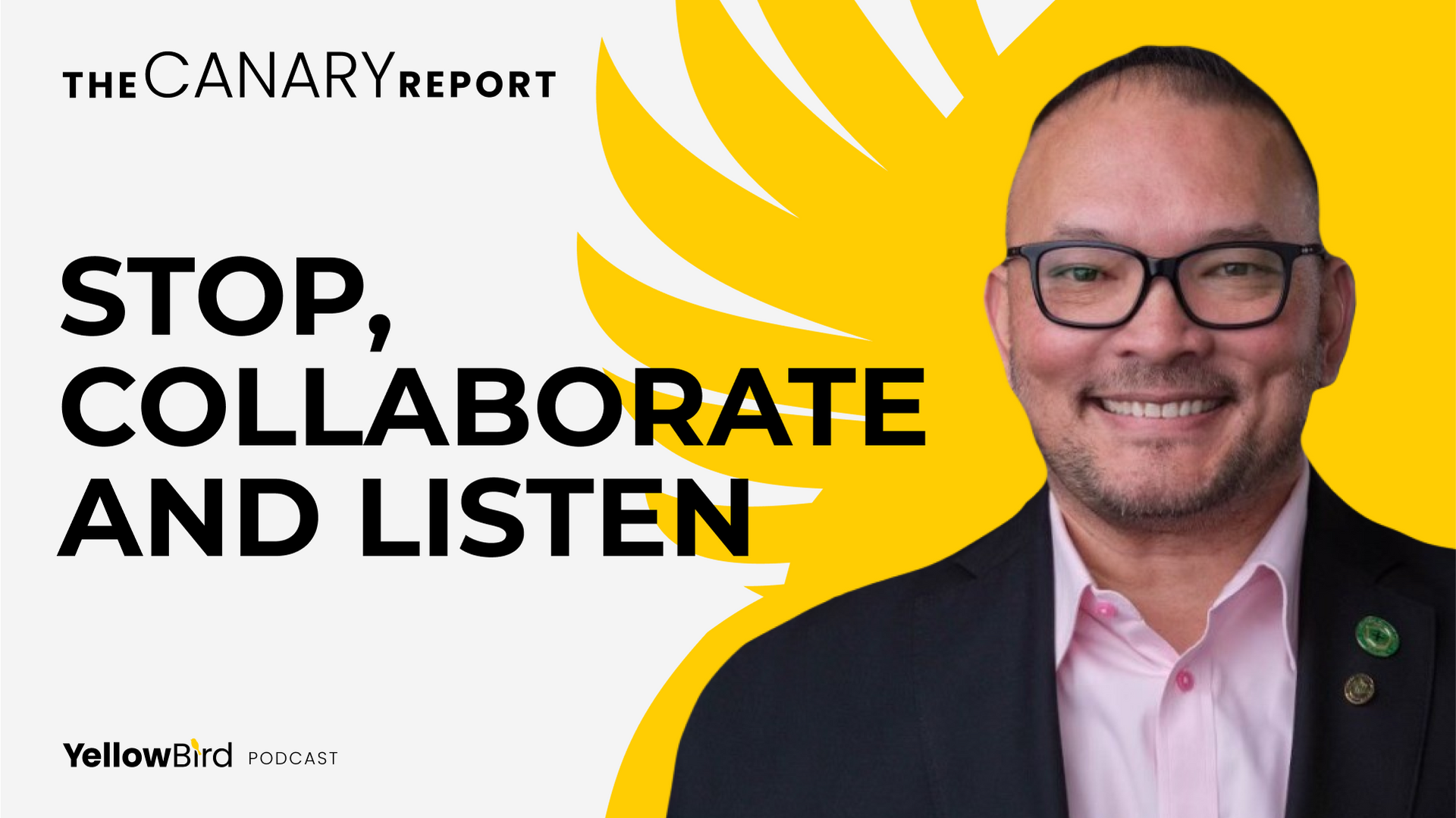Stop, Collaborate, and Listen: How Tim Page-Bottorff Is Redefining Safety Leadership at JLL
What if the real work of safety is less about rules and more about relationships?

When we talk about safety, we often default to the language of policies, procedures, and compliance. But what if the real work of safety is less about rules and more about relationships?
That’s the conversation at the heart of the latest episode of The Canary Report, where host Michael Zalle sits down with Tim Page-Bottorff, HSSC Senior Director at JLL, former SafeStart consultant, and Marine Corps veteran. With over three decades in the field, Tim doesn’t just talk about safety; he lives it. And in this candid conversation, he opens up about the frameworks, mindset shifts, and human moments that have shaped his approach.
If you’re in a safety leadership role, especially in high-risk industries, this episode is a masterclass in how to build safety cultures that actually stick. Not through top-down control, but through trust, vulnerability, and the simple (but often overlooked) power of listening.
The Three-Part Framework Behind Tim’s Leadership Style
Tim’s leadership mantra is borrowed, unapologetically, from a 90s classic: “Stop, Collaborate, and Listen.” But he’s not quoting Vanilla Ice for the fun of it. For Tim, this is a real framework, one he’s committing to for the next three years, both professionally and personally.
Here’s how it breaks down:
- Stop: Too many safety leaders rush into decisions. They move quickly because the pace of operations demands it. But in that rush, they often miss context, overlook nuance, and fail to bring people along. Tim’s first step is always to pause and assess what’s really happening.
- Collaborate: Instead of charging ahead solo, Tim seeks out others. Collaboration isn’t just about having a meeting; it’s about co-creating solutions with the people who are closest to the work.
- Listen: The final (and often hardest) step is to listen. Not to respond. Not to defend. But to understand. Tim believes listening is the foundation of psychological safety, and the most underused skill in leadership today.
When implemented consistently, this approach doesn’t just improve decision-making. It slows down the “rushing” mindset that leads to mistakes, rework, and burnout — and replaces it with something more sustainable and human.
Psychological Safety: Making It Actionable with VENT and REAL
Buzzwords like “psychological safety” get thrown around a lot in corporate safety programs. But Tim is focused on making them actionable, especially for frontline supervisors and mid-level managers who are caught between strategic mandates and daily operational pressures.
To do that, he uses two frameworks: VENT and REAL.
The VENT Method:
- Voice concerns
- Explain details
- Near-miss reporting
- Trust building
VENT helps safety professionals create a structured, repeatable process for dialogue. It turns vague conversations into specific, proactive moments of connection, moments where real culture is shaped.
The REAL Approach:
- Respect
- Empathy
- Accept
- Listen
REAL reminds leaders that emotional intelligence isn’t a soft skill, it’s a leadership imperative. Especially when teams are under pressure or recovering from an incident. Together, VENT and REAL give safety leaders practical ways to embed care into their daily routines. Not as a one-off training, but as a habit.
Soft Skills Aren’t Optional: They’re Strategic
Tim’s hiring philosophy is refreshingly honest: degrees and certifications matter, but they’re the starting point, not the goal. What is Tim looking for when building safety teams? The ability to build relationships, communicate clearly, and read the room. In his words, “Technical skills complete tasks. Soft skills change culture.”
This mindset isn’t just about hiring, it’s also about preventing misalignment down the road. When you hire people who can communicate clearly and set expectations upfront, you reduce scope creep, minimize friction, and improve engagement across the board.
And in safety, where one missed cue can have serious consequences, that kind of clarity is priceless.
Burnout and the Badge of Busy
One of the more vulnerable moments in the conversation comes when Tim talks about burnout. Not just as a concept, but as a lived experience.
For years, he traveled 9 months out of the year. Constant flights, hotel rooms, and time zones. Like many safety professionals, he wore that schedule like a badge of honor. But over time, it became clear: it wasn’t sustainable.
The impact wasn’t just personal; it affected how present he could be as a leader. And it raised bigger questions about how the industry defines commitment.
Tim now advocates for more sustainable systems. Local resource networks. Virtual collaboration tools. Smarter travel. Because safety doesn’t have to mean sacrifice, and leading well doesn’t have to mean burning out.
Safety Culture Starts with the Middle
One of the most powerful takeaways from this episode is how much emphasis Tim places on the role of mid-level leaders. These are the people who translate vision into action. Who balance spreadsheets with site visits. Who coach teams through the gray areas where policy and people don’t always line up perfectly.
And too often, they’re unsupported.
Tim’s frameworks are designed for them, not just executives or field staff, but the folks in the middle who hold the whole thing together. He sees them as the linchpin in building a safety culture that lasts.
Final Thoughts: Leading Like People Matter
What makes Tim’s approach resonate isn’t the models or acronyms; it’s the mindset behind them.
At its core, his message is simple: lead like people matter.
Slow down. Ask better questions. Listen like you mean it. Choose connection over control. And build systems that serve humans, not just metrics.
It’s not flashy. It won’t show up on a spreadsheet. But it’s how real culture gets built, one conversation, one relationship, one decision at a time.
🎧 Listen to the full episode of The Canary Report with Tim Page-Bottorff:
Apple Podcasts: https://bit.ly/3INUIqp
Spotify: https://bit.ly/40Aazir
YouTube: https://youtu.be/rNZ3PAkMe3I
👉 If this episode hit home, follow The Canary Report for more candid, human-first conversations about safety, leadership, and culture.

